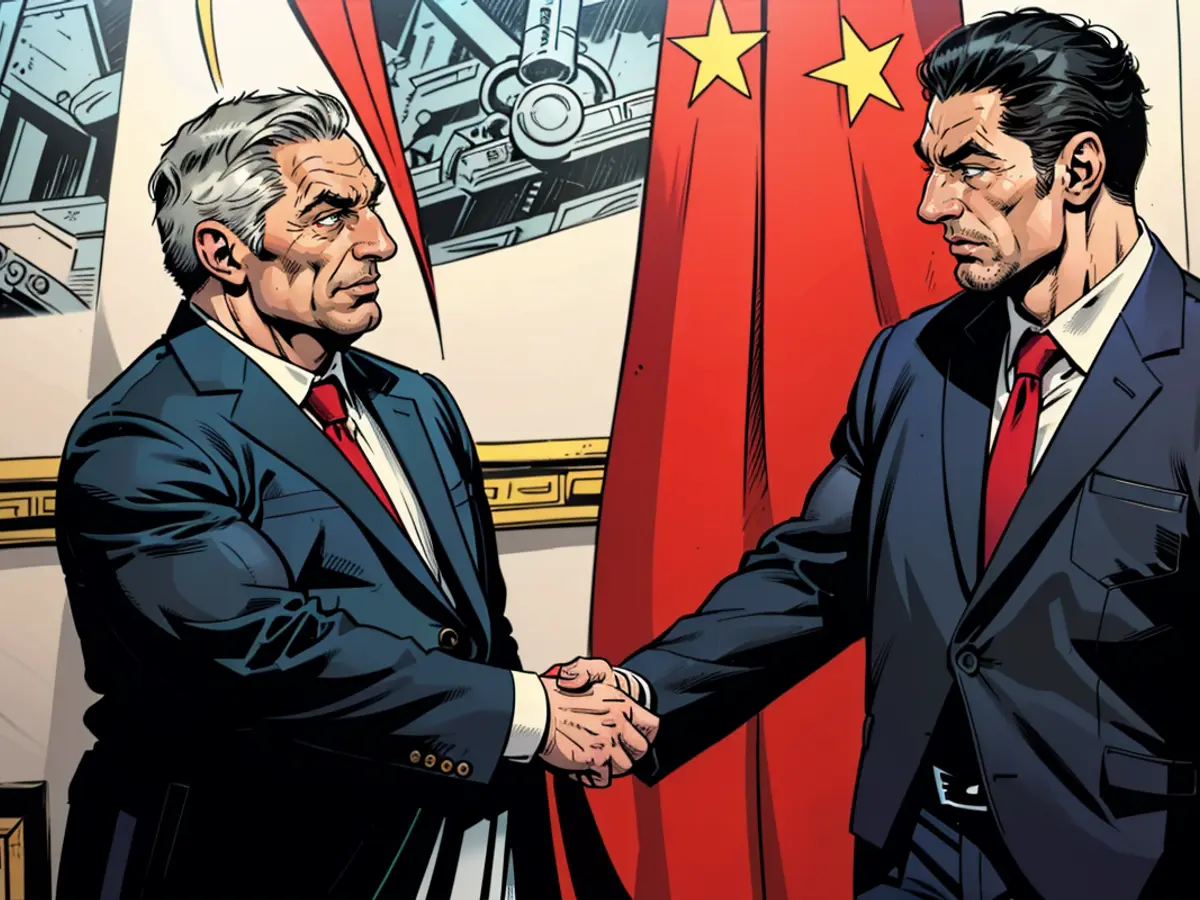Orban meets Xi in Beijing - German government keeps its distance
Habeck told the TV-Sender Welt that Orban went to China "as Hungarian Prime Minister and not as a representative of Europe." "He can certainly do that. But he is not speaking for Europe in this place," said the Vice-Chancellor. Government spokesman Hebestreit also stressed that Orban acted as Hungarian Prime Minister and not as a representative of the EU during his trips to Russia and China.
Orban described his visit to Beijing as "Peace Mission 3.0." He went to China because Beijing is a decisive actor in efforts to achieve peace in Ukraine, Orban wrote in the online service X after a meeting with Chinese State Council Chairman Xi Jinping.
Hungary took over the EU Council Presidency on July 1. A few days later, Orban then traveled to Ukraine and Russia. His meeting with Russian President Vladimir Putin, which Orban also referred to as part of his "Peace Mission," drew sharp criticism in the EU.
Orban maintains close relations with Moscow despite the Ukraine conflict and goes against the EU line. Orban has repeatedly delayed EU sanctions against Russia and EU financial aid for Kiev.
China presents itself as a neutral party in the Ukraine conflict. The Western allies of Ukraine accuse Beijing of not condemning the Russian attack war. Xi called for direct peace negotiations between Kiev and Moscow after the meeting with Orban. The international community must call for a ceasefire, Xi said.
Orban also confirmed his call for peace negotiations. "Now is the right time to move from war politics to peace politics," he told the "Bild" newspaper. "I am not arguing about who is right and who is not. My goal is peace and a ceasefire."
The German government rejected Orban's initiative and referred to the peace plan of Ukrainian President Volodymyr Zelensky, which calls for a complete withdrawal of Russian troops from his country. A peace plan that, in principle, comes close to a capitulation of Ukraine and allows Russia to achieve its war goals, is unacceptable, said government spokesman Hebestreit.
In the "Bild" interview, Orban warned of further escalation of the fighting in Ukraine. "Believe me: The next two, three months will be much bloodier than we think," Orban said. "There are more weapons and the Russians are more determined. The energy of confrontation, the number of dead, the number of victims will therefore be more brutal than in the past seven months."
The Hungarian Prime Minister is traveling from Beijing to the NATO summit in Washington. The members of the alliance will discuss the defense capabilities of the alliance there from Tuesday to Thursday and coordinate further aid for Ukraine in the war against Russia.
Indian Prime Minister Narendra Modi, meanwhile, traveled to Moscow for a meeting with Putin. The visit on Monday is Modi's first to Russia since the beginning of the Ukraine conflict. Russia is still by far the largest weapons supplier for India and supplies the country with cheap oil. Modi's government has therefore so far abstained from condemning Russia's attack on Ukraine.
Orban's trip to China was labeled as "Peace Mission 3.0," emphasizing Beijing's role in Ukraine peace efforts. During the visit, Orban met with Chinese State Council Chairman Xi Jinping. Despite taking over the EU Council Presidency, Orban visited Ukraine and Russia, drawing criticism for his meeting with Putin. China is perceived as a neutral party in the Ukraine conflict, with the EU accusing Beijing of not condemning the Russian attack. Orban maintains close ties with Moscow despite the Ukraine conflict and has delayed EU sanctions against Russia. The German government rejected Orban's peace initiative, referring to Zelensky's peace plan. Orban is set to attend the NATO summit in Washington, while Modi travels to Moscow for a meeting with Putin, strengthening Russian-Indian relations.







